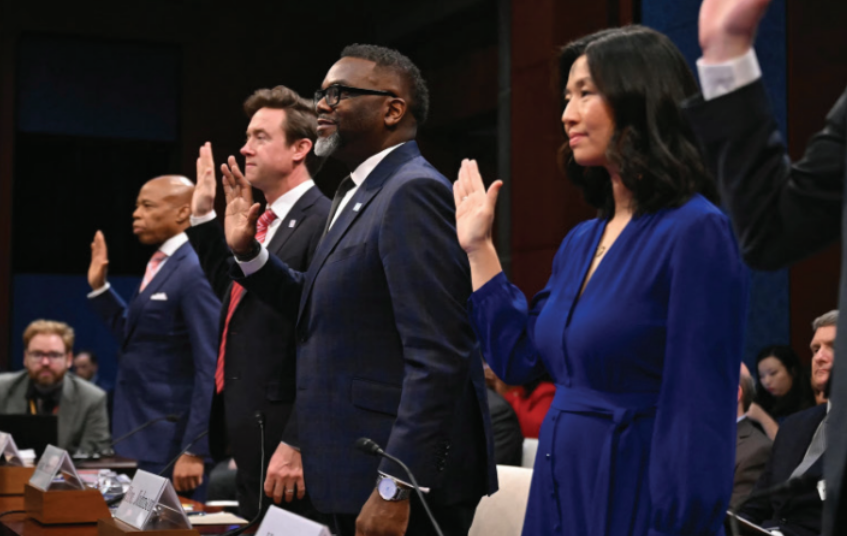This year at CRLS, all students are now required to place their phones in a plastic bag or box before class. In a Pew Research Center study this March, 44% of teens said they feel anxious without their phones. About 70% believe the benefits outweigh the harms. In a New York Times article published in November 2023, students had mixed views on cellphone bans, but the majority agreed that phones were major distractors in classrooms. What about on the teachers’ side? According to a Pew Research Center study this June, high school teachers overwhelmingly said that phone distraction is a major problem in classrooms. Additionally, Vivek Murthy, whose duty as US Surgeon General is to inform Americans about health, released a statement in a New York Times op-ed arguing that social media platforms should be required to have a surgeon general’s warning label.
As a result of growing negative views of phones, many school districts around the nation have adopted phone policies in classrooms; Cambridge Public Schools has joined school districts in implementing a new phone policy. Nevertheless, many teachers and administrators have conflicting ideas about how to administer them. Eight states have passed legislation banning or restricting phones, and a further fourteen states have legislation introduced.
The first state to ban phones in classrooms was Florida, when Governor Ron DeSantis signed a bill in May 2023, which was passed unanimously by the legislature. It also bans the use of social media on school computers and WiFi networks. It provides educators the option to allow phone use for educational purposes and also mandates phone health education. So far, results are mostly positive. Phone-related incidents at schools in Orange County Public Schools, like bullying, have decreased. Administrators require phones in bags during the whole school day. Students reported that violations were common at first, but the majority of students eventually complied over time as they became more accustomed to the practice. In a local article, students and teachers alike have reported positive outcomes from the phone policies in Orange County schools, ranging from fewer fights to increased attention in class.
Critics of school-wide phone policies raise arguments against the policies that require students to give up their phones for entire school days. Parents are especially concerned about safety, including emergencies and general whereabouts, as well as coordinating transportation, child mental health, along with other needs. A school administration editorial also argued that local districts and education officials are more well suited to address the issue of phones than state governments.
Federally, politicians across party lines are teaming up to address this issue. Republican Senator Tom Cotton and Democratic Senator Tim Kaine successfully campaigned to launch an education department study of school district phone policies. They are also pushing for a five-million dollar bill to provide secure storage places for phones—not just because storage places are so useful, but also to draw attention to the growing trend of phone bans and sustain school efforts.




















